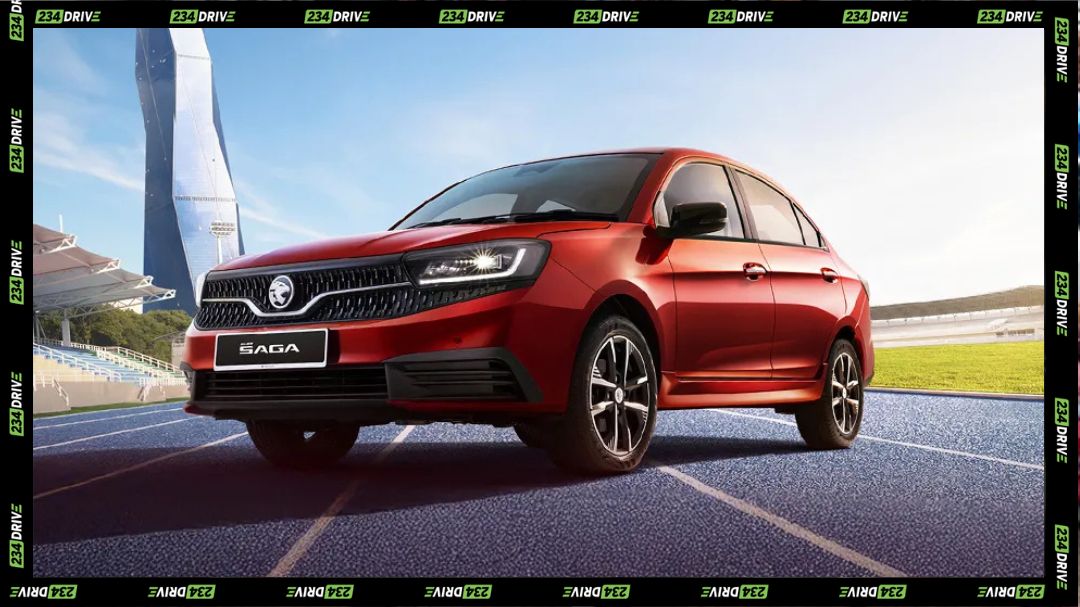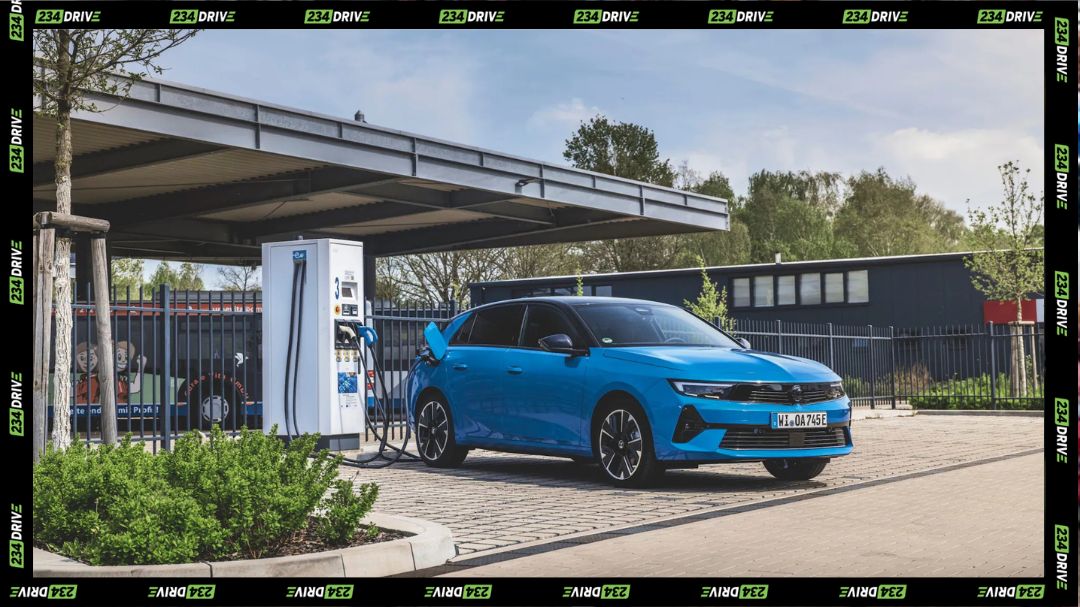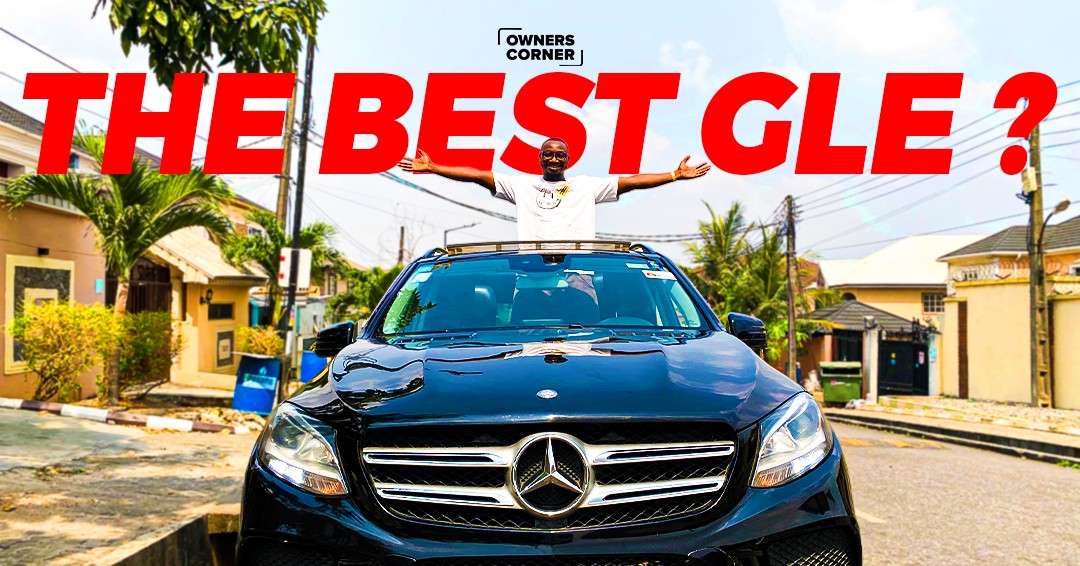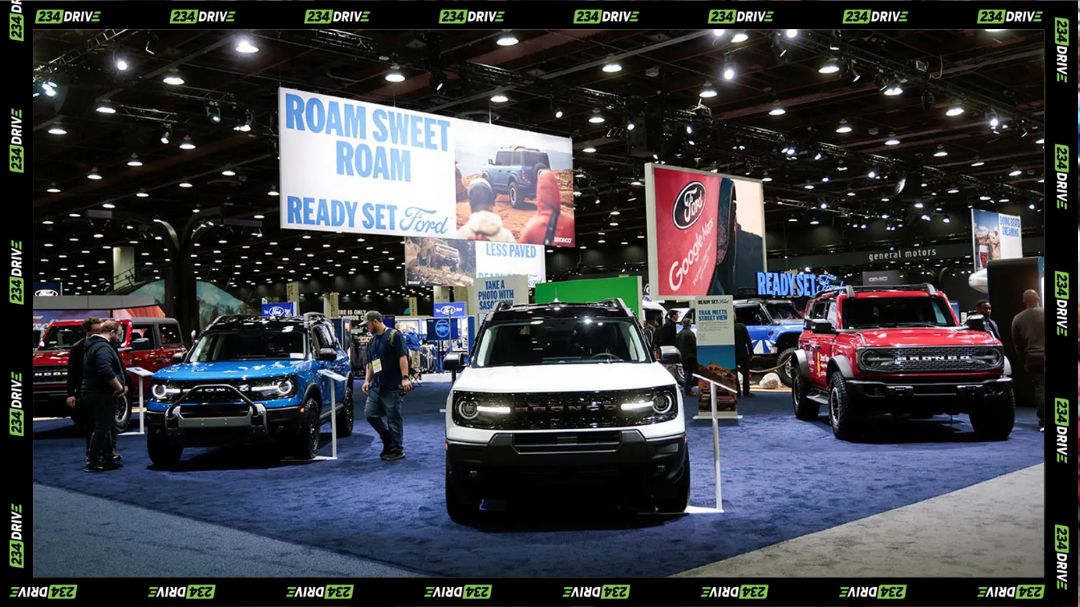The 2025 Honda Accord continues to establish itself as a dominant force in the midsize sedan segment, building on the comprehensive redesign that debuted in 2023. This iteration emphasizes efficiency through its advanced hybrid powertrain while maintaining Honda’s legendary reputation for reliability, comfort, and long-term value. For Nigerian drivers navigating high fuel costs and challenging road conditions, the Accord presents a compelling blend of performance and economy that addresses real-world transportation needs.
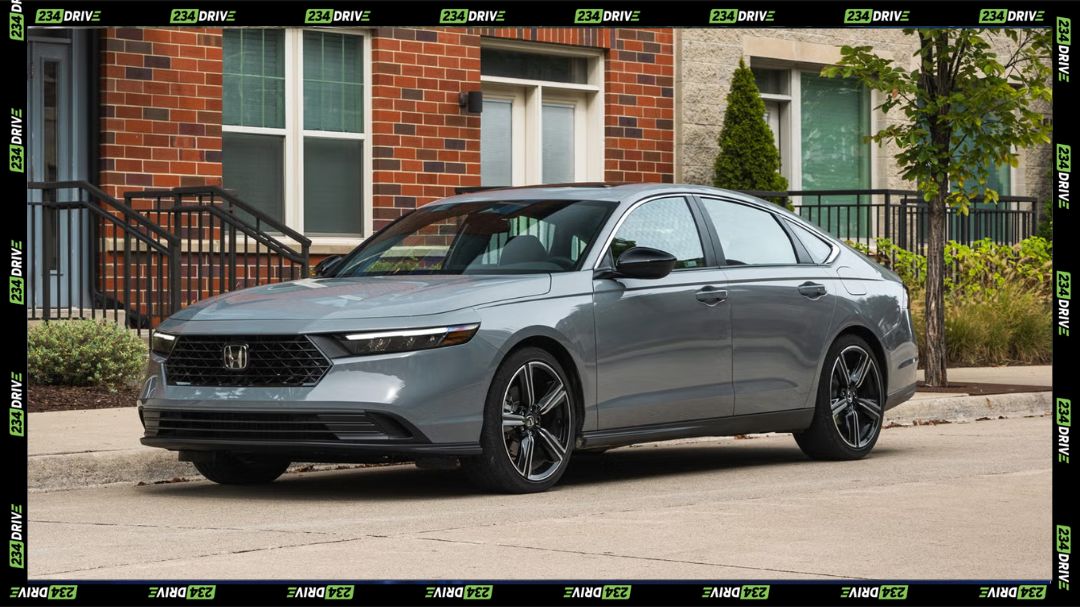
With pricing ranging from approximately ₦58 million to ₦64 million for new 2025 models in Nigeria, the Accord represents a significant investment influenced by import duties, exchange rate fluctuations, and dealer markups. However, its combination of spacious accommodations, cutting-edge technology, and class-leading fuel efficiency—particularly in hybrid variants—positions it as a practical choice for professionals and families seeking a premium sedan experience without the maintenance complexities of European alternatives.
Exterior Design and Road Presence

The 2025 Honda Accord showcases a sleek, aerodynamic profile characterized by a fastback-inspired roofline that enhances both visual appeal and fuel efficiency. Measuring approximately 195.7 inches in length with a 111.4-inch wheelbase, the sedan projects a substantial road presence while maintaining maneuverability in urban environments. The front fascia features a prominent honeycomb grille flanked by slim LED headlights, creating a sophisticated yet purposeful appearance. Available color options include Canyon River Blue Metallic, Solar Silver Metallic, and Crystal Black Pearl, each emphasizing the vehicle’s modern design language.

Wheel sizes range from 17-inch alloy wheels on base LX models to aggressive 19-inch options on higher Sport and Touring trims, contributing to the Accord’s athletic stance. While automotive publications have praised the design’s elegance and aerodynamic efficiency, some enthusiasts note that it adopts a more conservative aesthetic compared to the bolder styling of previous generations. This refined approach prioritizes functionality over visual drama, with improved drag coefficient supporting the hybrid’s impressive fuel economy figures. The understated design may appeal to professional buyers in Lagos and Abuja seeking a premium sedan that projects success without ostentation.
Interior Comfort and Technology Features
Step inside the 2025 Accord, and you’re greeted by a spacious, upscale cabin designed to comfortably seat five adults with generous rear legroom measuring 40.8 inches. The trunk offers 16.7 cubic feet of cargo space, expandable through folding rear seats for larger items—a practical consideration for Nigerian families balancing passenger comfort with luggage capacity. Material quality impresses across the range, with leather-trimmed seats standard on EX-L and higher trims, complemented by body-stabilizing front seats that provide excellent support during extended drives on highways like the Lagos-Ibadan Expressway.
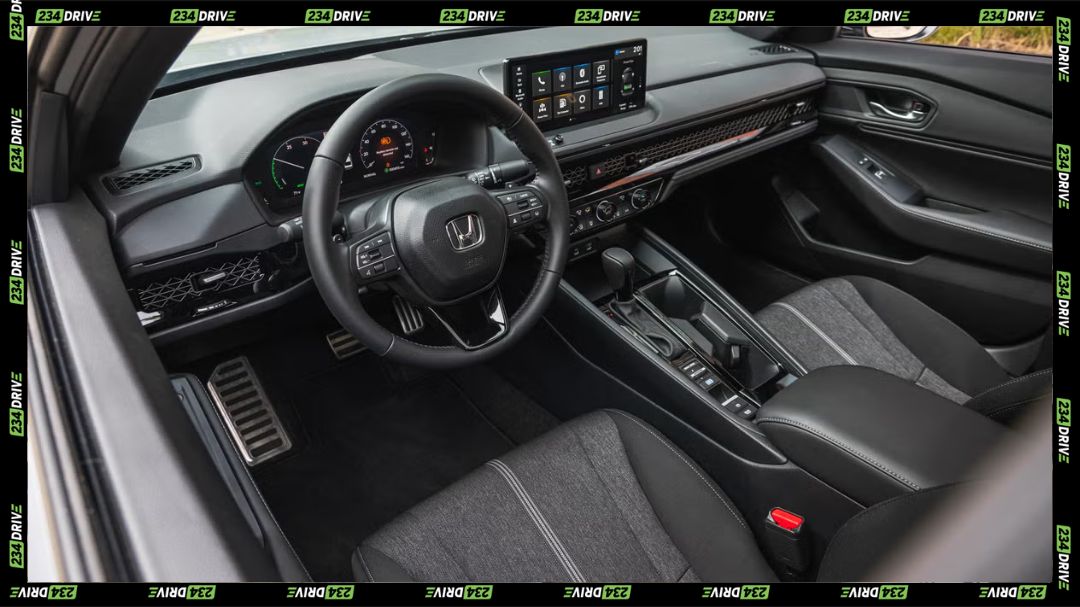
Technology integration reaches impressive levels, particularly in hybrid models equipped with a 12.3-inch touchscreen featuring swipe controls, Google built-in functionality, and wireless Apple CarPlay/Android Auto. A 10.2-inch digital driver display comes standard across all trims, providing clear instrumentation and vehicle information. Premium features include wireless charging, a Bose 12-speaker audio system, dual-zone automatic climate control, and heated/ventilated seating options on Touring variants. The HondaLink app enables remote functions like climate pre-conditioning and vehicle tracking, adding convenience for security-conscious Nigerian owners. While base LX models feature a smaller 7-inch screen with fewer amenities, the user interface remains intuitive and responsive across all configurations.
Performance and Powertrain Options
The 2025 Accord offers two distinct powertrain configurations tailored to different driving priorities. Entry-level LX and SE trims utilize a turbocharged 1.5-liter inline-four engine producing 192 horsepower and 192 lb-ft of torque, paired with a continuously variable transmission featuring G-Design Shift for smoother acceleration. This setup delivers adequate performance with 0-60 mph acceleration in approximately 7.3 seconds, making it suitable for everyday commuting and highway merging. The turbocharged engine provides responsive power delivery across the rev range, though some drivers may find the CVT’s characteristic operation less engaging than traditional automatic transmissions.

For buyers prioritizing efficiency and performance, the hybrid system—standard on Sport, EX-L, Sport-L, and Touring trims—combines a 2.0-liter Atkinson-cycle four-cylinder engine with two electric motors for a combined output of 204 horsepower. This configuration achieves 0-60 mph in 6.7 seconds thanks to instant electric torque, offering noticeably quicker acceleration than the base engine. Multiple drive modes include EV for short electric-only operation, Sport for dynamic handling, ECON for maximum fuel savings, and Individual for customized settings. The hybrid’s seamless power delivery and regenerative braking via steering-wheel paddles create a refined driving experience particularly suited to stop-and-go traffic in Nigerian cities. All Accord models feature front-wheel drive with no all-wheel-drive option, which may limit traction on unpaved roads but reduces mechanical complexity and maintenance requirements.
Fuel Economy and Running Costs
Fuel efficiency stands as one of the 2025 Accord’s most compelling attributes, especially relevant in Nigeria where petrol prices fluctuate significantly. The hybrid achieves EPA ratings of 51 mpg city, 44 mpg highway, and 48 mpg combined—figures that translate to exceptional real-world economy in urban driving conditions. This efficiency can substantially offset operating costs over the vehicle’s lifetime, making the hybrid’s premium pricing more palatable for high-mileage drivers. Real-world testing has shown the hybrid system often exceeds EPA estimates, particularly in congested traffic where regenerative braking recovers energy that would otherwise be lost.
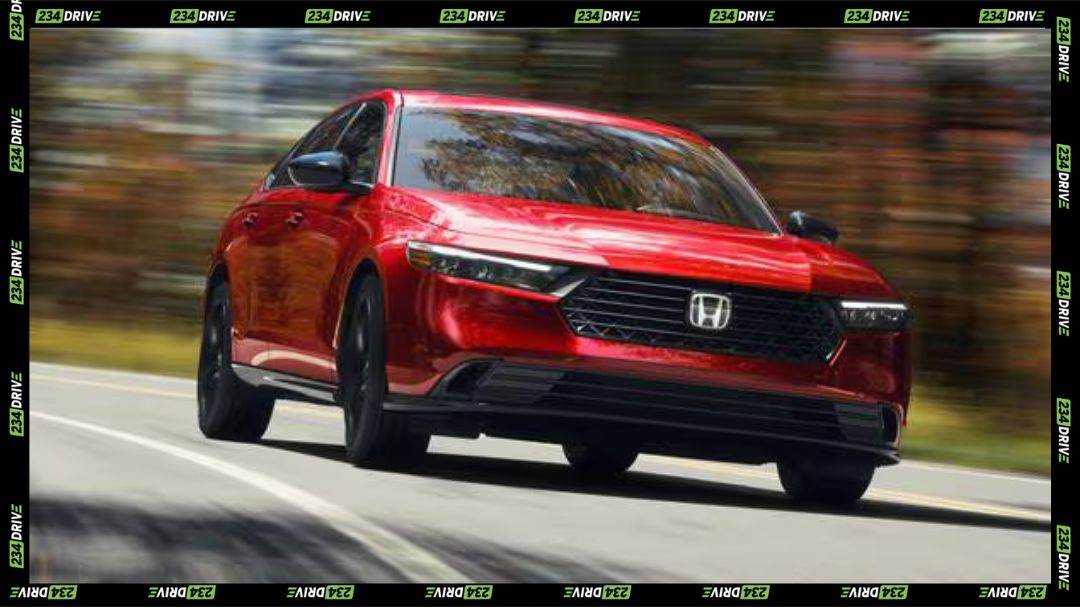
The non-hybrid powertrain delivers respectable but less impressive figures of 29 mpg city, 37 mpg highway, and 32 mpg combined—still competitive within the segment but significantly behind the hybrid’s capabilities. For Nigerian buyers calculating total cost of ownership, the hybrid’s superior efficiency could save thousands of naira monthly in fuel expenses, potentially justifying its higher purchase price within two to three years of ownership. The regenerative braking system also reduces brake wear, lowering maintenance costs over time and extending service intervals—an important consideration where genuine Honda parts may command premium prices.
Safety Features and Driver Assistance
Every 2025 Honda Accord comes equipped with the comprehensive Honda Sensing suite as standard equipment, demonstrating the manufacturer’s commitment to occupant protection across all trim levels. This package includes collision mitigation braking with pedestrian detection, road departure mitigation, adaptive cruise control with low-speed follow capability, lane-keeping assist, and traffic sign recognition. These active safety features provide meaningful assistance in preventing accidents, particularly valuable on Nigerian highways where driving conditions can be unpredictable and traffic discipline varies.
Higher trims add advanced features including blind-spot monitoring, rear cross-traffic alert, and low-speed braking control for parking situations. The Accord’s strong safety reputation stems from its sophisticated integration of these technologies, earning high ratings from safety organizations. For families prioritizing protection, the combination of active and passive safety features—including multiple airbags and a rigid body structure—provides confidence whether navigating Lagos traffic or undertaking long-distance highway journeys to Abuja or Port Harcourt.
Pricing and Trim Levels in Nigeria
Nigerian pricing for the 2025 Honda Accord reflects the complex interplay of import duties (up to 35%), value-added tax, logistics costs, and dealer margins, substantially inflating costs beyond US market prices. The base LX trim starts at $28,295 in America (approximately ₦41.4 million at current exchange rates), but Nigerian listings show new 2025 models beginning around ₦58 million for entry-level variants. Mid-range EX-L Hybrid models typically price between ₦62 million and ₦64 million, while fully-loaded Touring variants can reach ₦65 million to ₦70 million depending on dealer location and specific equipment.
These figures account for the naira’s ongoing volatility, with black market exchange rates around ₦1,465 per dollar as of November 2025 compared to the official rate of ₦1,447. Prospective buyers should verify current pricing with authorized Honda dealers in Lagos, Abuja, and Kaduna, as availability and specifications may vary. The Sport Hybrid trim, starting at $33,990 US ($35,375 for Sport-L), offers strong value with its 12.3-inch touchscreen, 19-inch wheels, and wireless charging, typically pricing around ₦62-64 million locally. Used 2023-2024 Accord models offer more accessible entry points between ₦30 million and ₦45 million for buyers seeking similar capabilities at reduced cost.
How It Fits Into Nigeria’s Terrain
The 2025 Honda Accord’s design and engineering suit Nigerian driving environments in several key respects, though some limitations warrant consideration. The sedan’s front-wheel-drive configuration and refined suspension tuning deliver composed handling on paved roads, providing comfort during extended highway journeys while maintaining stability through corners. Ground clearance remains modest by SUV standards, potentially limiting capability on severely degraded roads or during flooding, but proves adequate for well-maintained urban routes and major highways. The hybrid’s ability to operate in electric-only mode during slow-moving traffic reduces fuel consumption and engine wear in congested conditions typical of Lagos and Abuja rush hours.
Climate control capabilities prove essential in Nigeria’s tropical environment, with dual-zone automatic systems maintaining cabin comfort despite exterior temperatures frequently exceeding 30°C. The Accord’s premium sound insulation helps reduce road noise and creates a refined atmosphere even on rougher surfaces. From a prestige perspective, the Honda brand commands respect in Nigerian automotive circles for reliability and longevity, though it lacks the status symbolism of German luxury badges. Maintenance considerations favor the Accord, with Honda’s established service network in major cities providing parts availability and technical expertise—crucial factors for long-term ownership confidence. The hybrid system’s proven durability in global markets suggests reliability comparable to conventional powertrains, though specialized training requirements may limit service options to authorized facilities.
Where It Beats (and Loses to) Rivals
In the Nigerian midsize sedan segment, the 2025 Honda Accord faces competition primarily from the Toyota Camry, Hyundai Sonata, and increasingly, premium compact SUVs at similar price points. The Camry hybrid offers comparable fuel efficiency and slightly higher local brand recognition, with pricing typically within ₦2-3 million of equivalent Accord trims. However, the Accord delivers superior handling dynamics and more engaging driving characteristics, factors that matter to enthusiasts even if they don’t influence every buyer. Both vehicles share excellent reliability reputations, though Honda’s slightly sportier character may appeal to younger professionals while the Camry’s conservative image attracts more traditional buyers.


Against the Hyundai Sonata, the Accord commands a premium of ₦5-8 million but justifies this through stronger resale value retention and perceived superior build quality. Durability comparisons favor both Honda and Toyota over Korean alternatives in Nigerian conditions, where vehicles often endure harsh treatment and inconsistent maintenance. The Accord’s maintenance costs remain competitive with segment rivals, with service intervals every 10,000 kilometers and major services at 40,000-kilometer intervals. Genuine parts pricing falls between Toyota’s extensive network advantages and European luxury brands’ premium rates. Resale value projections favor the Accord strongly, with three-year-old models typically retaining 60-65% of original purchase price—an important consideration given Nigeria’s active used car market and buyers’ awareness of total ownership costs.
Conclusion
The 2025 Honda Accord delivers a compelling package for Nigerian buyers seeking a premium midsize sedan that balances efficiency, comfort, and modern technology. Its hybrid powertrain stands out as particularly relevant given local fuel costs, offering genuine savings that accumulate significantly over years of ownership. While pricing between ₦58 million and ₦64 million represents a substantial investment, the Accord’s proven reliability, comprehensive safety features, and strong resale value provide confidence in long-term ownership economics.
The sedan’s refined driving dynamics, spacious accommodations, and intuitive technology create an ownership experience that justifies its premium positioning, though buyers should carefully evaluate their specific needs regarding ground clearance and all-wheel-drive capability. For professionals and families prioritizing a sophisticated, efficient daily driver with minimal maintenance drama, the 2025 Accord remains an excellent choice that continues Honda’s tradition of delivering practical excellence. We invite readers to share their experiences with the Accord or thoughts on its suitability for Nigerian conditions in the comments below—your insights help inform fellow automotive enthusiasts navigating similar purchase decisions.


